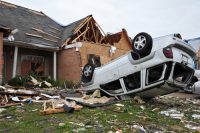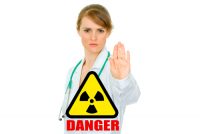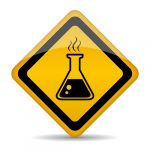Category: Emergency Preparedness and Response
No one wants it to happen, but an emergency, natural or manmade, can strike at anytime, 24/7. What’s more, it need not be a major, nationally-televised incident, such as a hurricane, earthquake, or act of political terror. An event as common as a local building fire can present just as large a challenge to you. These resources will help you create a plan for handling such crises, whatever their scope, and to carry it out in a way that best protects your employees and your company.
Free Special Report: 50 Tips for More Effective Safety Training
When an intern for Liz Claiborne, Inc., the women’s clothing manufacturer headquartered in New York City, was being harassed by an ex-boyfriend, the company security department immediately intervened. She was provided with daily escorts to her train station, and she was told to call the company’s dispatch center each evening to confirm that she arrived […]
This question deserves a thoughtful response because active shooters and other active assailants present clear and present danger for workplaces across the United States as evidenced by the frequency and severity of recent attacks both here and abroad. Consider the following: There were 19 identified active assailant events in 2014 and over 40% of those […]
In 2011, California School Teacher Carlie Charlesworth divorced her husband. Because he had a history of violence, the court granted Charlesworth a restraining order against her ex-husband, Martin Charlesworth. Despite the restraining order, in January 2013, Martin Charlesworth showed up in the parking lot of Holy Trinity School in El Cajon, prompting a school lockdown […]
The possibility of severe spring storms bringing high winds, flash floods, and dangerous tornadoes affects much of the country in March. These storms can leave serious property damage in their wake. Are you prepared to clean up after a storm? Cleanup recommendations for specific weather events are outlined below. Storm and Tornado Cleanup Storm and […]
March, the saying goes, comes in like a lion and goes out like a lamb. It’s that “like a lion” part that should worry you: the possibility of severe spring storms bringing flash floods, high winds, and dangerous tornadoes affects much of the country in March. Is your site prepared for severe weather? Keep reading […]
Most people who work in cold conditions are aware of their risk of frostbite and hypothermia, but they may be less aware of their risk of dehydration, overexertion, and trench foot caused by cold exposure. Here’s how workers can identify these conditions and treat them appropriately. Here are signs, symptoms, and first-aid recommendations for these […]
The polar vortex and the Arctic blast may sound like the names of frozen treats from your local ice cream shop; sadly, you’re not likely to top off the real thing with whipped cream and colorful sprinkles. These blasts of frigid air and accompanying winter weather can do real damage—some of which might require a […]
HAZWOPER Medical Surveillance FAQs—Part 2 Q: At what time(s) are medical examinations and consultations required for employees covered under the HAZWOPER regulations? A: The frequency requirements for medical examinations and consultations are established as follows: For employees covered under 1910.120(f)(2)(i), (ii), and (iv), employers must make medical examinations and consultations available: Before assignment, At least […]
HAZWOPER Medical Surveillance FAQs—Part 1 Q: Which employees must employers include in a medical surveillance program? A: According to 29 CFR 1910.120(f)(2)(i)–(iv), employees who meet the following requirements must be included in a medical surveillance program: All employees who are or may be exposed to hazardous substances or health hazards at or above the permissible […]
EPA Adds New TRI Reporting Category for Nonylphenol Section 313 of the Emergency Planning and Community Right-to-Know Act (EPCRA) requires facilities that manufacture, process or otherwise use chemicals listed in the TRI to report a variety of data regarding those chemicals. The EPA is authorized to add new chemicals to the TRI when those chemicals […]









